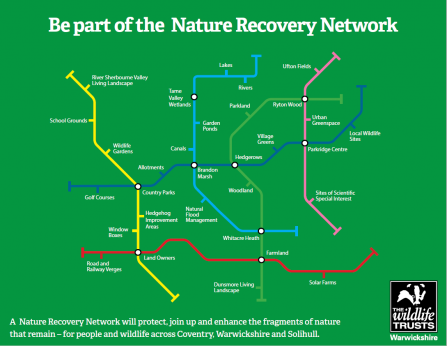In the film Sir David calls for powerful new laws to ensure the UK’s wild places can thrive once more and for a Nature Recovery Network.
Sir David Attenborough says in the film:
“A wildlife-rich natural world is vital for our wellbeing and survival. We need wild places to thrive. Yet many of our systems and laws have failed the natural world. We now live in one of the most nature depleted places on the planet. Nature urgently needs our help to recover – and it can be done. By joining up wild places and creating more across the UK we would improve our lives and help nature to flourish - because everything works better when it’s connected."


